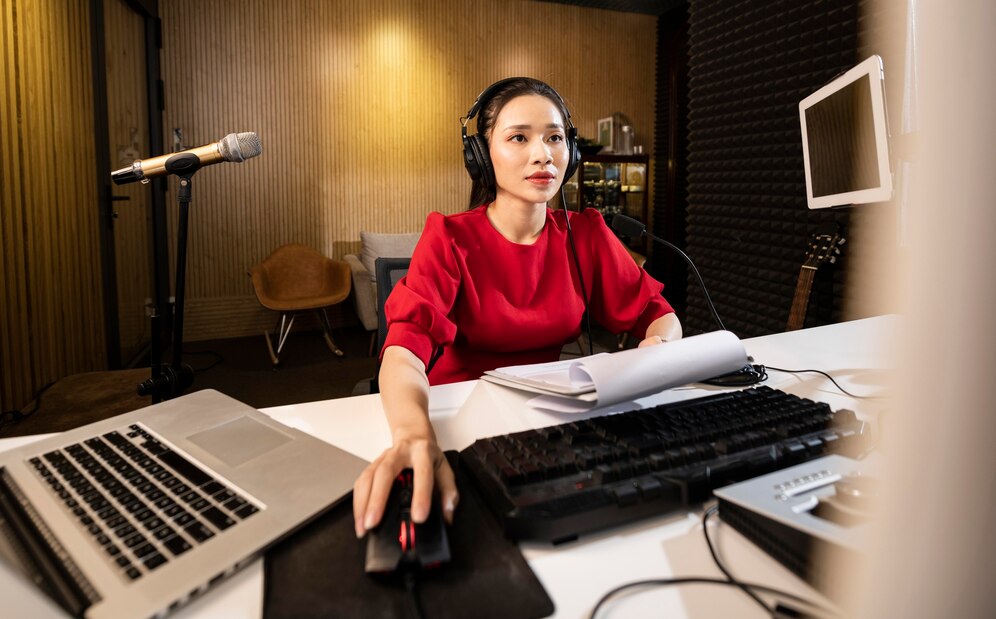Hollywood has always been a playground for the cutting edge—practical effects, CGI, motion capture. But in recent years, a new technology has taken center stage: Artificial Intelligence. From generating hyper-realistic deepfakes to assisting in screenwriting and casting, AI is reshaping how stories are told, who tells them, and what it even means to be “real” on screen.
As the entertainment industry embraces AI’s potential, it also faces deep questions around creativity, consent, ethics, and labor. Is AI the next great storytelling tool—or a threat to the very people who create the magic?
Deepfakes and Digital Doubles
Once a novelty or a tool for internet mischief, deepfake technology has grown into a legitimate (and controversial) filmmaking asset. AI-powered facial replacement and body doubling can now:
-
De-age actors, as seen in The Irishman and Indiana Jones and the Dial of Destiny.
-
Resurrect performers, like Peter Cushing in Rogue One or Carrie Fisher in The Rise of Skywalker.
-
Create entirely digital actors, as used in video games, commercials, and even test footage for films.
Studios are exploring AI clones of actors—full-body digital replicas that can be directed, re-aged, or even licensed independently. While this offers powerful creative flexibility, it also raises red flags about ownership of one’s likeness, particularly for deceased actors or those under exploitative contracts.
AI in the Writers’ Room
AI’s role in screenwriting is still evolving—but it’s here. Tools like ChatGPT and Sudowrite are being used to:
-
Generate plot outlines
-
Create dialogue drafts
-
Brainstorm character arcs
-
Repurpose or localize content for different markets
In theory, AI can act as a collaborator—suggesting ideas or speeding up the revision process. In practice, it’s sparked a wave of concern among screenwriters, especially in light of the 2023 Writers Guild of America (WGA) strike, which partly addressed AI’s threat to human creativity and compensation.
The fear isn’t just that AI might write scripts—it’s that studios might use AI to generate first drafts and then pay writers less to “punch them up,” fundamentally altering how writers are valued in the industry.
AI in Casting and Production
Beyond writing and visuals, AI is impacting every phase of production:
-
Casting AI can analyze actor performance, vocal tone, and audience engagement to “predict” casting success.
-
AI-powered voice cloning can replicate an actor’s voice in multiple languages, creating hyper-realistic dubs.
-
Set and costume design tools now use generative AI to draft mood boards and even 3D models.
-
Editing software like Adobe’s Firefly and Runway ML automate tasks like scene transitions, color correction, and background replacement.
These tools can cut production costs and timelines, making independent filmmaking more accessible—but they also shift power toward studios and platforms that can afford the best algorithms.
The Big Debate: Creativity vs. Automation
AI can remix, replicate, and reimagine—but can it create in the same way humans do?
That’s the philosophical and professional tension at the heart of the AI-in-Hollywood debate. Critics argue:
-
AI lacks lived experience, cultural nuance, and emotional intuition.
-
AI models are trained on existing human work—sometimes without consent.
-
Overreliance on AI could lead to homogenized, risk-averse storytelling.
Supporters counter that AI is a tool, not a replacement—a creative partner, not a creator. Used thoughtfully, it can expand what’s possible in storytelling, especially for under-resourced creators.
Legal & Ethical Storms Ahead
As AI tech advances, the entertainment industry faces growing legal questions:
-
Can an actor own their digital double?
-
Is it ethical to train an AI on copyrighted film scripts or performances?
-
Should AI-generated content receive copyright protection?
-
How do contracts protect (or fail to protect) artists from being digitally replicated?
Some unions, like SAG-AFTRA, are now including clauses in contracts to limit the use of AI on actors’ likenesses, and new legislation may soon follow to address digital labor rights.
The Future of Hollywood (With AI in the Credits)
AI isn’t going away—it’s evolving alongside human creativity. The question now is how the industry chooses to integrate it. Will it democratize filmmaking, offering tools to new voices and fresh visions? Or will it centralize power further, cutting out the writers, actors, and artists that make cinema what it is?
One thing is clear: the future of Hollywood will be co-written—by humans and machines alike.

